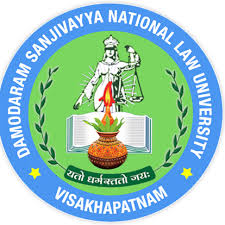 Deadline
17-12-2024
Deadline
17-12-2024
Details of the Organization
The Centre for Alternate Dispute Resolution (CADR) at Damodaram Sanjivayya National Law University stands at the forefront of promoting innovative and effective dispute resolution mechanisms. With a vision to bridge the gap between academic scholarship and practical implementation, CADR has consistently undertaken initiatives that enrich the understanding and practice of arbitration, mediation, and other dispute resolution methods. As part of its commitment to advancing legal research, CADR proudly presents the Journal on Arbitration Law and Allied Fields.
This journal, an initiative by the Centre, aims to provide a dedicated platform for legal professionals, scholars, and students to contribute cutting-edge research and foster a deeper exploration of arbitration and its intersection with various legal
disciplines. Through this initiative, CADR seeks to stimulate informed discussions, offer practical insights, and support the development of arbitration law, both in India and globally.
Details of the Blog/Paper
The Journal on Arbitration Law and Allied Fields is a bi-annual, peer- reviewed publication led by the Centre for Alternate Dispute Resolution (CADR) at Damodaram Sanjivayya National Law University, Visakhapatnam. This journal is designed to serve as a platform for scholars, legal professionals, and practitioners to engage in rigorous analysis and contribute to the growing discourse on arbitration and related areas of law. With a distinguished editorial board comprising academicians, subject matter experts, leading practitioners, and retired judges, the journal aims to strike a balance between theoretical scholarship and practical insights. The diverse expertise of their contributors ensures that the journal
addresses contemporary challenges in arbitration law while fostering innovation and thought leadership in the field.
They are excited to announce the Call for Papers for the First Volume, First Issue of the journal, which will be published in January 2025. This issue seeks to feature high-quality research articles, case commentaries, book reviews, and critical essays on a wide range of topics related to arbitration and its allied fields. They invite submissions that reflect original thinking, thorough research, and practical relevance, as they aim to advance arbitration law and practice both in India and globally.
Topic of paper/Blog
Themes and Sub-themes:
The Journal on Arbitration Law and Allied Fields encourages submissions that address a wide range of topics related to arbitration and its allied fields. While the following themes and sub-themes are provided as a guide, they are not exhaustive. Authors are encouraged to explore topics beyond these suggested
Themes:
Technological Advancements in Arbitration
- The impact of AI and machine learning on arbitration processes
- Blockchain technology and smart contracts in dispute resolution
Cryptocurrency and Digital Assets
- Arbitration of disputes involving cryptocurrencies
- Legal challenges in digital asset arbitration
Climate Change and Environmental Disputes
- Arbitration of climate change-related disputes
- Environmental impact assessments in arbitration
Post-Pandemic Arbitration
- Handling COVID-19 related disputes
- Virtual hearings and their implications on arbitration
International Sanctions and Arbitration
- Impact of sanctions on arbitration proceedings
- Enforcement of arbitration awards under sanctions
Cross-Border Disputes
- Jurisdictional challenges in international arbitration
- Enforcement of foreign arbitral awards
Ethics and Professional Conduct
- Ethical considerations in arbitration
- Professional conduct of arbitrator
Arbitration in Specific Industries
- Arbitration in the sectors of construction, maritime, energy, sports etc.
- Dispute resolution in sector of Aviation, healthcare & Pharmaceuticals
Arbitration and Human Rights
- Arbitration of human rights violations
- Role of arbitration in protecting human rights
Emerging Trends in Arbitration Law
- Recent developments in arbitration laws
- Comparative analysis of arbitration laws across jurisdictions
Types of Submission and Word Limit
- Articles: 3000–5000 words (excluding footnotes).
- Short Notes: 2000–3000 words (excluding footnotes).
- Book Reviews: 1000–2000 words (excluding footnotes).
- Case Commentaries: 1000–3000 words (excluding footnotes).
Submission Guidelines
- Articles must contain an abstract of no more than 250 words.
- Submissions are accepted only in the English language. The manuscript must be submitted in MS Word format.
- The following formatting rules should be followed, Font: Times New Roman. Font Size: 12. Line Spacing: 1.5. Alignment: Justified. Margins: 1 inch on all sides.
- All citations must conform to the OSCOLA (4th Edition) citation style
- The manuscript should be original, unpublished, and free from plagiarism. The manuscript must relate to arbitration law or its allied fields.
- The submission should be grammatically correct and free from spelling or other errors.
- The manuscript must not contain the author’s name, affiliation, or any identifying details.
- A separate cover page should be submitted with the author’s name, affiliation, qualifications, and contact details, along with a brief biographical description
Dates to Remember
The submission deadline for manuscripts for the First Volume, First Issue of JALAF is 17th December, 2024. Submissions received after this date will not be considered for the January 2025 publication.
How to Register?
After you apply, you will receive the next steps of the application process via email.
Find the best legal roles every day! Join our exclusive WhatsApp channel by clicking here: https://bit.ly/3xfjZV4
For any questions or concerns, please contact us via email at: [email protected]









 ADDICTIVE LEARNING TECHNOLOGY LIMITED
ADDICTIVE LEARNING TECHNOLOGY LIMITED